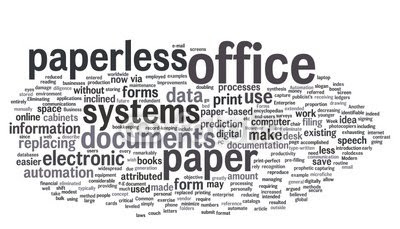In today's digital age, the transition from paper-based to paperless business operations has become increasingly prevalent. With this shift comes the need for robust security measures to protect sensitive information stored in digital formats. In this article, we delve into the various aspects of digital document security, including encryption, access controls, and authentication methods, to ensure the confidentiality, integrity, and availability of paperless business documents.
Encryption: The Foundation of Data Security
Encryption serves as the cornerstone of digital document security by converting plain text into ciphertext, rendering it unreadable without the appropriate decryption key. Advanced encryption algorithms, such as AES (Advanced Encryption Standard) and RSA (Rivest-Shamir-Adleman), are widely utilized to safeguard confidential information from unauthorized access and interception. Implementing end-to-end encryption ensures that data remains protected both in transit and at rest, minimizing the risk of data breaches and unauthorized disclosure.
Access Controls: Limiting Access to Authorized Users
Access controls play a crucial role in regulating the permissions and privileges granted to users within an organization. Role-based access control (RBAC) and attribute-based access control (ABAC) are common frameworks used to enforce granular access policies based on users' roles, responsibilities, and security clearances. By implementing access controls, organizations can restrict access to sensitive documents to authorized personnel only, mitigating the risk of insider threats and unauthorized access.
Authentication Methods: Verifying User Identities
Authentication mechanisms verify the identities of users attempting to access digital resources, ensuring that only legitimate users are granted access to sensitive information. Multi-factor authentication (MFA), which combines multiple authentication factors such as passwords, biometrics, and security tokens, provides an additional layer of security against unauthorized access attempts. Furthermore, implementing strong password policies, including complex passwords and regular password rotations, enhances the overall security posture of an organization's digital infrastructure.
Data Loss Prevention (DLP): Preventing Unauthorized Data Exfiltration
Data loss prevention (DLP) solutions enable organizations to monitor, detect, and prevent the unauthorized transmission of sensitive information outside the corporate network. By leveraging content-aware scanning and policy enforcement mechanisms, DLP solutions can identify and mitigate data leakage risks arising from inadvertent or malicious actions by employees. Integration with encryption technologies ensures that even if data is intercepted, it remains encrypted and unintelligible to unauthorized parties.
Continuous Monitoring and Auditing: Ensuring Compliance and Accountability
Continuous monitoring and auditing of digital document access and usage are essential for maintaining compliance with regulatory requirements and industry standards. Security information and event management (SIEM) solutions enable organizations to aggregate, correlate, and analyze security-related events in real time, facilitating proactive threat detection and incident response. Regular audits and compliance assessments help identify security gaps and vulnerabilities, allowing organizations to remediate issues and strengthen their overall security posture.
Conclusion
In an era characterized by digital transformation and remote collaboration, securing paperless business documents has never been more critical. By implementing robust encryption, access controls, authentication methods, and data loss prevention measures, organizations can safeguard sensitive information from unauthorized access, interception, and exfiltration. Continuous monitoring and auditing ensure compliance with regulatory requirements and industry standards, fostering a culture of accountability and trust within the organization.
As businesses continue to embrace paperless operations, prioritizing digital document security becomes imperative in protecting valuable assets and maintaining stakeholder trust. By adopting a proactive approach to digital document security, organizations can mitigate the risks associated with data breaches, ensure regulatory compliance, and safeguard their reputation in an increasingly interconnected and data-driven world.
Click here to explore the benefits of running a paperless business.




























